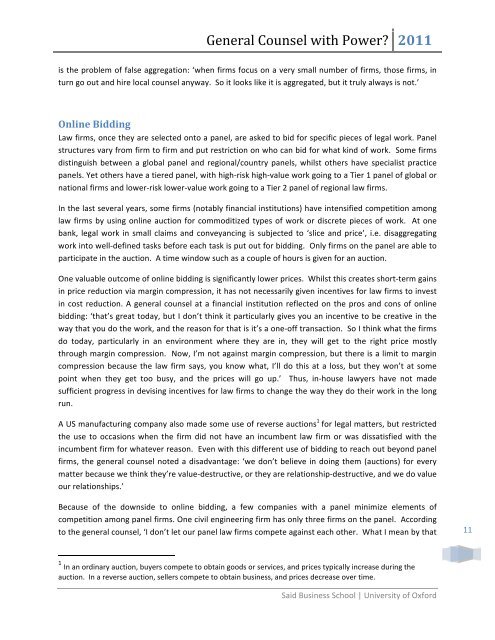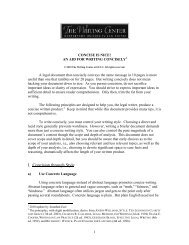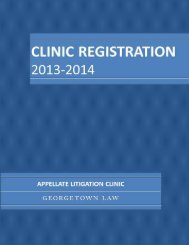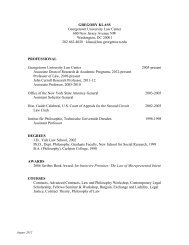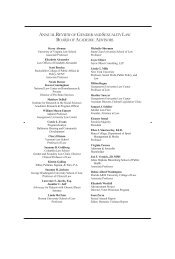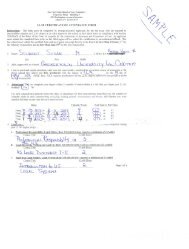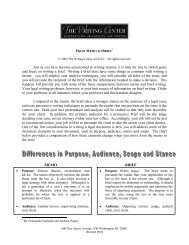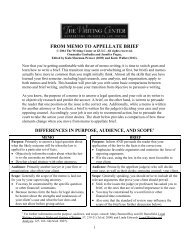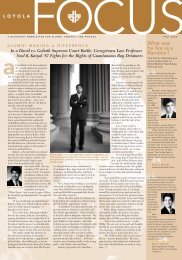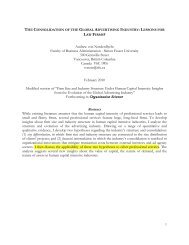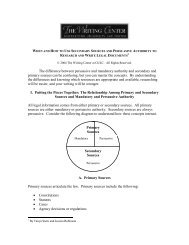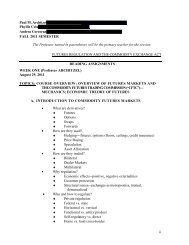Date: April 12, 2013 Topic: The Shrinking ... - Georgetown Law
Date: April 12, 2013 Topic: The Shrinking ... - Georgetown Law
Date: April 12, 2013 Topic: The Shrinking ... - Georgetown Law
You also want an ePaper? Increase the reach of your titles
YUMPU automatically turns print PDFs into web optimized ePapers that Google loves.
General Counsel with Power? 2011 <br />
is the problem of false aggregation: ‘when firms focus on a very small number of firms, those firms, in <br />
turn go out and hire local counsel anyway. So it looks like it is aggregated, but it truly always is not.’ <br />
Online Bidding <br />
<strong>Law</strong> firms, once they are selected onto a panel, are asked to bid for specific pieces of legal work. Panel <br />
structures vary from firm to firm and put restriction on who can bid for what kind of work. Some firms <br />
distinguish between a global panel and regional/country panels, whilst others have specialist practice <br />
panels. Yet others have a tiered panel, with high-‐risk high-‐value work going to a Tier 1 panel of global or <br />
national firms and lower-‐risk lower-‐value work going to a Tier 2 panel of regional law firms. <br />
In the last several years, some firms (notably financial institutions) have intensified competition among <br />
law firms by using online auction for commoditized types of work or discrete pieces of work. At one <br />
bank, legal work in small claims and conveyancing is subjected to ‘slice and price’, i.e. disaggregating <br />
work into well-‐defined tasks before each task is put out for bidding. Only firms on the panel are able to <br />
participate in the auction. A time window such as a couple of hours is given for an auction. <br />
One valuable outcome of online bidding is significantly lower prices. Whilst this creates short-‐term gains <br />
in price reduction via margin compression, it has not necessarily given incentives for law firms to invest <br />
in cost reduction. A general counsel at a financial institution reflected on the pros and cons of online <br />
bidding: ‘that’s great today, but I don’t think it particularly gives you an incentive to be creative in the <br />
way that you do the work, and the reason for that is it’s a one-‐off transaction. So I think what the firms <br />
do today, particularly in an environment where they are in, they will get to the right price mostly <br />
through margin compression. Now, I’m not against margin compression, but there is a limit to margin <br />
compression because the law firm says, you know what, I’ll do this at a loss, but they won’t at some <br />
point when they get too busy, and the prices will go up.’ Thus, in-‐house lawyers have not made <br />
sufficient progress in devising incentives for law firms to change the way they do their work in the long <br />
run. <br />
A US manufacturing company also made some use of reverse auctions 1 for legal matters, but restricted <br />
the use to occasions when the firm did not have an incumbent law firm or was dissatisfied with the <br />
incumbent firm for whatever reason. Even with this different use of bidding to reach out beyond panel <br />
firms, the general counsel noted a disadvantage: ‘we don’t believe in doing them (auctions) for every <br />
matter because we think they’re value-‐destructive, or they are relationship-‐destructive, and we do value <br />
our relationships.’ <br />
Because of the downside to online bidding, a few companies with a panel minimize elements of <br />
competition among panel firms. One civil engineering firm has only three firms on the panel. According <br />
to the general counsel, ‘I don’t let our panel law firms compete against each other. What I mean by that <br />
11 <br />
1 In an ordinary auction, buyers compete to obtain goods or services, and prices typically increase during the <br />
auction. In a reverse auction, sellers compete to obtain business, and prices decrease over time. <br />
Said Business School | University of Oxford


